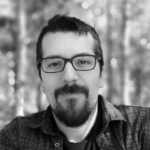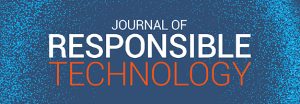As quantum computing technologies move towards commercialisation, there is increasing interest in their potential impact on society, evidenced by the recent publication of many national strategies and quantum technologies programmes. In the wake of lessons learned from other emerging technologies such as AI, along with increased public scrutiny and societal expectation, there is a clear need for the responsible development and deployment of quantum computing, as well as a collaborative and timely approach. A number of quantum computing institutions are already engaging on this topic, including technology providers, national bodies, prominent research institutes, and technical fora.
Recognising the importance attributed to responsible and ethical development and use of quantum computing, this workshop aims to move beyond definitions to explore novel contributions to the field and next steps towards operationalisation.
In this workshop, we discuss associated questions:
- The first session discusses Operationalising Responsible Quantum Computing, covering efforts to put responsible quantum into practice. This facilitates the exchange of best practices and novel proposals, and the identification of needs relating to the impacts of integrating quantum technologies into society, as well as potential practices, frameworks, standards and regulatory tools for regulating their impact.
- The second session discusses Technical Aspects of Responsible Quantum Computing, including those relating to quantum machine learning, such as explainability; error correction; HPC integration, and environmental implications, such as energy efficiency.
- The final session will discuss Opportunities and Challenges for Responsible Quantum Initiatives and Research, and will facilitate the sharing of case studies and lessons learnt.
Call for papers and talks for Responsible Quantum Readiness Workshop at IEEE Quantum Week 2024
We now invite submissions for both paper (with talk) and talk-only submissions on each of the following themes.
- Operationalising responsible quantum
- Technical aspects of responsible quantum computing
- Opportunities and challenges for responsible quantum initiatives
Submission deadline: 22nd July
Planned notification of acceptance date: 26th July
Submission types
Papers
Papers of 2-6 pages (including references) are invited for submission, and the link is below. Paper submissions must conform to the IEEE Formatting Instructions. Submissions must also comply with the IEEE Policy on Authorship. Papers will be subject to a peer review process. Authors of accepted papers will be invited to give an oral presentation of 20 minutes during the workshop, and accepted papers will be published in the IEEE QCE24 Conference Proceedings. By submitting a paper, you are committing at least one author to register and attend the conference in person upon acceptance of your paper.
Talks
For talk-only abstracts, the submission format is a short description of the proposed talk. You may also include supporting documents or link to relevant materials (e.g., already published papers).
Please note that papers (with talk) will be prioritised over talk-only submissions.
Submission link
Please submit your talk/paper through the IEEE website here. Clicking on ‘Author’ should take you to a page with a menu option for ‘New submission’
Main contact: Mira Wolf-Bauwens, mwo@zurich.ibm.com
Carolyn Ten Holter, carolyn.ten.holter@cs.ox.ac.uk
Natasha Oughton, natasha.oughton@stfc.ac.uk
Zeki Can Seskir, zeki.seskir@kit.edu
Karl Thibault, karl.thibault@usherbrooke.ca
Workshop organisers:
 Dr Mira L Wolf-Bauwens leads the Responsible Quantum Computing effort in the Responsible \& Inclusive Technologies Team at IBM Research. Mira also is a IBM Quantum Technical Ambassador. Mira holds a PhD in Political Philosophy on institutional recognition and normative evaluation of emerging technologies from University of Zurich with Visiting Research Fellowships at Columbia University and University of Oxford. Mira has extensive experience in organizing conferences – both academic as well as industry-focused ones. During her PhD she organized workshops for the Institute of Philosophy at University of Zurich. During her time at IBM she convened several interdisciplinary conferences such as, among others, World of Quantum Panel Discussion on QT Governance (2022, 2023), Quantum Industry Days in Switzerland (2021, 2022, 2023).
Dr Mira L Wolf-Bauwens leads the Responsible Quantum Computing effort in the Responsible \& Inclusive Technologies Team at IBM Research. Mira also is a IBM Quantum Technical Ambassador. Mira holds a PhD in Political Philosophy on institutional recognition and normative evaluation of emerging technologies from University of Zurich with Visiting Research Fellowships at Columbia University and University of Oxford. Mira has extensive experience in organizing conferences – both academic as well as industry-focused ones. During her PhD she organized workshops for the Institute of Philosophy at University of Zurich. During her time at IBM she convened several interdisciplinary conferences such as, among others, World of Quantum Panel Discussion on QT Governance (2022, 2023), Quantum Industry Days in Switzerland (2021, 2022, 2023).
 Dr Natasha Oughton is the Quantum Computing Policy and Ethics Lead at the UK’s National Quantum Computing Centre. Her work focuses on responsible and ethical quantum computing (REQC), and spans carrying out research into societal, ethical and policy implications, developing internal practices and guidance, and enabling stakeholders on REQC across the UK and global quantum computing landscape, including convening the Responsible Quantum Industry Forum. She has an interdisciplinary background in both philosophy and physics, with a focus on quantum information theory and foundations, and wrote her DPhil thesis on understanding quantum theory through information-theoretic reconstructions at Somerville College, University of Oxford. At Oxford, she co-convened the weekly Philosophy of Physics Graduate Seminar for two years, and was a co-organizer of the inaugural Oxford Philosophy of Physics Graduate Conference.
Dr Natasha Oughton is the Quantum Computing Policy and Ethics Lead at the UK’s National Quantum Computing Centre. Her work focuses on responsible and ethical quantum computing (REQC), and spans carrying out research into societal, ethical and policy implications, developing internal practices and guidance, and enabling stakeholders on REQC across the UK and global quantum computing landscape, including convening the Responsible Quantum Industry Forum. She has an interdisciplinary background in both philosophy and physics, with a focus on quantum information theory and foundations, and wrote her DPhil thesis on understanding quantum theory through information-theoretic reconstructions at Somerville College, University of Oxford. At Oxford, she co-convened the weekly Philosophy of Physics Graduate Seminar for two years, and was a co-organizer of the inaugural Oxford Philosophy of Physics Graduate Conference.
 Zeki Can Seskir is a researcher in the field of technology assessment (TA) at Karlsruhe Institute of Technology (KIT) – Institute for Technology Assessment and Systems Analysis (ITAS) and coordinator of the project “QuTec: Quantum Technology Innovations for Society.” He conducts landscaping studies on quantum technologies (QT) ecosystems, education and outreach research in QT, and conceptual exploration for ELSA research for QT to be utilized in TA capabilities. He was a co-coordinator of the project “Quantum Technologies Education for Everyone [QuTE4E]” organized within the QTEdu CSA under the Quantum Flagship, and a co-founder of QTurkey, a local branch of QWorld, a global NGO operating in quantum education and outreach. His background is in Science and Technology Policy Studies (STPS) and in Physics with a focus on Quantum Information Science. He published on topics such as the QT start-up ecosystem, publication and patent landscape, stakeholder engagement, and democratization of QT. His research interests cover a wide range of topics from quantum games to innovation ecosystems.
Zeki Can Seskir is a researcher in the field of technology assessment (TA) at Karlsruhe Institute of Technology (KIT) – Institute for Technology Assessment and Systems Analysis (ITAS) and coordinator of the project “QuTec: Quantum Technology Innovations for Society.” He conducts landscaping studies on quantum technologies (QT) ecosystems, education and outreach research in QT, and conceptual exploration for ELSA research for QT to be utilized in TA capabilities. He was a co-coordinator of the project “Quantum Technologies Education for Everyone [QuTE4E]” organized within the QTEdu CSA under the Quantum Flagship, and a co-founder of QTurkey, a local branch of QWorld, a global NGO operating in quantum education and outreach. His background is in Science and Technology Policy Studies (STPS) and in Physics with a focus on Quantum Information Science. He published on topics such as the QT start-up ecosystem, publication and patent landscape, stakeholder engagement, and democratization of QT. His research interests cover a wide range of topics from quantum games to innovation ecosystems.
 Dr Karl Thibault is part of the development team at the Institut quantique (IQ) of the Université de Sherbrooke as Operations and Talent Development Officer. His work has led him to forge links with several key players in the quantum ecosystem while assessing the potential for collaboration with IQ, particularly in the development of the Quantum Fablab’s experimental platform. He regularly participates in the organization of international conferences, and is currently working on setting up new training, student entrepreneurship, mentoring and science popularization programs, as well as on the democratization of quantum technologies. He is also involved in the interface between quantum, society and our planet, which led him to co-found the Q4Climate (quantum for climate) initiative, to design a research project on the life-cycle analysis of quantum computing technologies and to manage a research project aimed at anticipating the impacts of the integration of future quantum technologies.
Dr Karl Thibault is part of the development team at the Institut quantique (IQ) of the Université de Sherbrooke as Operations and Talent Development Officer. His work has led him to forge links with several key players in the quantum ecosystem while assessing the potential for collaboration with IQ, particularly in the development of the Quantum Fablab’s experimental platform. He regularly participates in the organization of international conferences, and is currently working on setting up new training, student entrepreneurship, mentoring and science popularization programs, as well as on the democratization of quantum technologies. He is also involved in the interface between quantum, society and our planet, which led him to co-found the Q4Climate (quantum for climate) initiative, to design a research project on the life-cycle analysis of quantum computing technologies and to manage a research project aimed at anticipating the impacts of the integration of future quantum technologies.
 Dr Carolyn Ten Holter is postdoctoral researcher and Policy Lead at Oxford’s Responsible Technology Institute and leads the work on responsible development of quantum computing within the Institute. Her work at the Institute focuses on the practical application of responsible innovation techniques in a variety of domains including human-centred AI and the environmental sustainability of ICT. She has a particular interest in policymaking and governance for novel technologies, and expertise in participatory and stakeholder-inclusive methods. Her work includes liaising with the Institute’s networks of civil society organisations, projects, and other organisations that work on similar themes. Prior to academia, her background is in industry, law, and commercial ICT. Her conference organisation experience includes leading on the organization of Oxford’s first carbon-neutral conference, the 100+ Brilliant Women in AI and Ethics.
Dr Carolyn Ten Holter is postdoctoral researcher and Policy Lead at Oxford’s Responsible Technology Institute and leads the work on responsible development of quantum computing within the Institute. Her work at the Institute focuses on the practical application of responsible innovation techniques in a variety of domains including human-centred AI and the environmental sustainability of ICT. She has a particular interest in policymaking and governance for novel technologies, and expertise in participatory and stakeholder-inclusive methods. Her work includes liaising with the Institute’s networks of civil society organisations, projects, and other organisations that work on similar themes. Prior to academia, her background is in industry, law, and commercial ICT. Her conference organisation experience includes leading on the organization of Oxford’s first carbon-neutral conference, the 100+ Brilliant Women in AI and Ethics.




